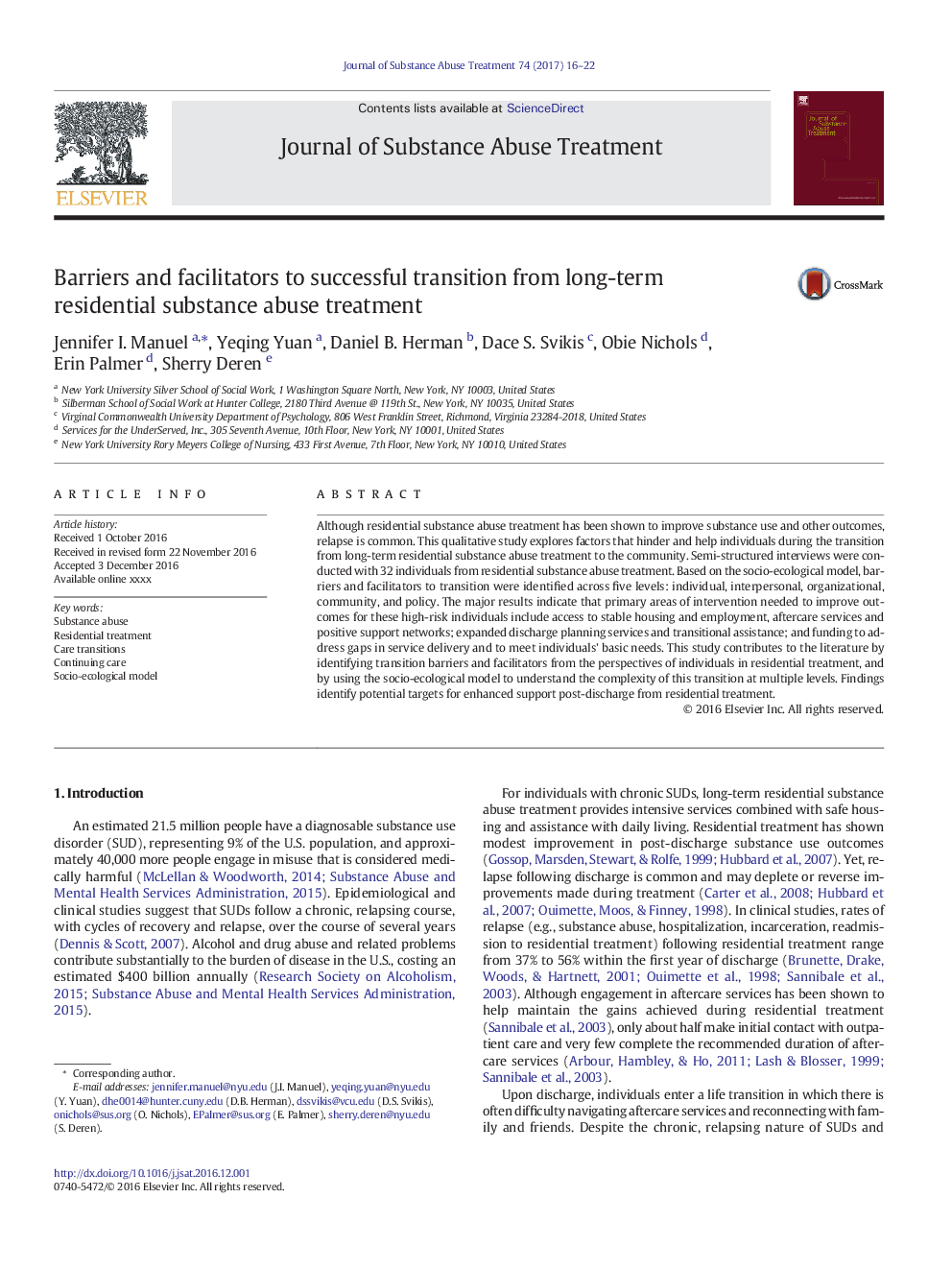ترجمه فارسی عنوان مقاله
موانع و تسهیل کننده ها برای انتقال موفقیت آمیز از درمان طولانی مدت مواد مخدر مسکن
عنوان انگلیسی
Barriers and facilitators to successful transition from long-term residential substance abuse treatment
| کد مقاله | سال انتشار | تعداد صفحات مقاله انگلیسی |
|---|---|---|
| 127321 | 2017 | 7 صفحه PDF |
منبع

Publisher : Elsevier - Science Direct (الزویر - ساینس دایرکت)
Journal : Journal of Substance Abuse Treatment, Volume 74, March 2017, Pages 16-22
ترجمه کلمات کلیدی
سوء مصرف مواد، درمان مسکن گذارهای مراقبت، مراقبت در ادامه، مدل اجتماعی و اکولوژیکی،
کلمات کلیدی انگلیسی
Substance abuse; Residential treatment; Care transitions; Continuing care; Socio-ecological model;
ترجمه چکیده
با وجودی که درمان سوء مصرف مواد درمانی برای بهبود استفاده از مواد و سایر نتایج، نشانگر عود بیماری است. این مطالعه کیفی فاکتورهایی را برای جلوگیری و کمک به افراد در طی گذر از درمان طولانی مدت مواد مخدر مسکن به جامعه مورد بررسی قرار می دهد. مصاحبه نیمه ساختار یافته با 32 نفر از درمان سوء مصرف مواد مخدر انجام شد. بر اساس مدل اجتماعی-اکولوژیکی، موانع و تسهیل کننده های انتقال در پنج سطح مشخص شد: فردی، بین فردی، سازمانی، جامعه و سیاست. نتایج اصلی نشان می دهد که زمینه های اصلی مداخله ای برای بهبود نتایج این افراد پر خطر شامل دسترسی به مسکن پایدار و اشتغال، خدمات پس از مراقبت و شبکه های پشتیبانی مثبت است. خدمات برنامه ریزی تخلیه و کمک های انتقالی گسترش یافته است و بودجه برای رفع شکاف در ارائه خدمات و رفع نیازهای اساسی افراد. این مطالعه با شناسایی موانع انتقال و تسهیلگر از دیدگاه افراد در درمان مسکونی و با استفاده از مدل اجتماعی-اکولوژیکی برای درک پیچیدگی این انتقال در سطوح مختلف، به ادبیات کمک می کند. یافته ها، اهداف بالقوه را برای تأمین حمایت پس از تخلیه از درمان های مسکونی تعیین می کنند.

